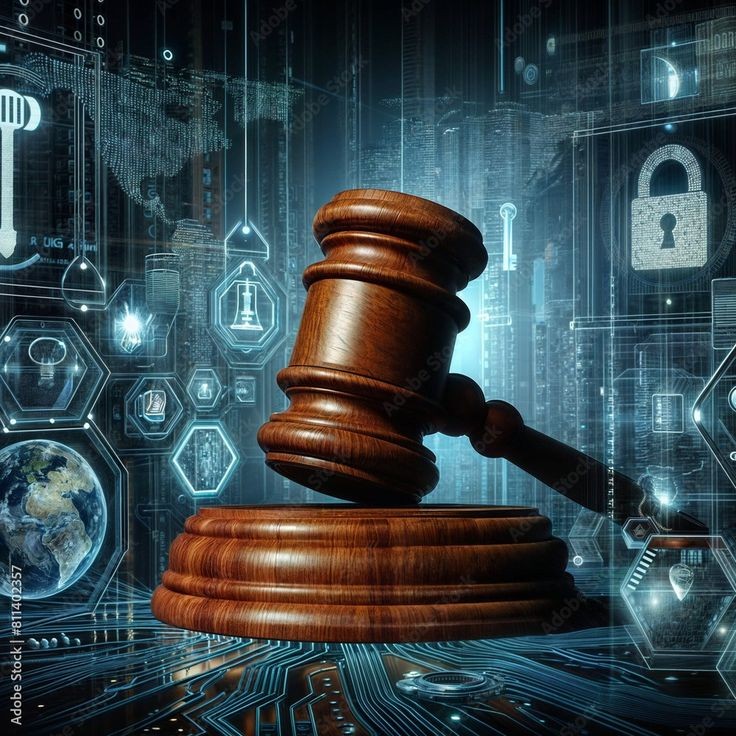AI and the Law: Is India Ready for This Dynamism?
In the age of rapid technological advancement, Artificial Intelligence (AI) is no longer a futuristic concept—it’s a reality shaping every aspect of our lives. From facial recognition and predictive policing to chatbots in customer service and algorithmic decision-making, AI has found its way into governance, justice delivery, healthcare, finance, and more. But this raises a pressing question: Is India legally prepared to deal with the implications of AI?
The Legal Vacuum Around AI in India:
Unlike countries like the USA, UK, and members of the EU, India does not yet have a dedicated legal framework governing AI. The current regulatory approach is sectoral and fragmented, relying on existing laws like:
- The Information Technology Act, 2000
- Indian Penal Code, 1860 now Bharatiya Nyaya Sanhita, 2023 (for cybercrime and data misuse)
- The Consumer Protection Act, 2019
- Contract law and tort principles
However, these laws do not specifically account for AI systems, especially issues like:
- Autonomous decision-making
- Algorithmic bias
- Liability in AI-caused harm
- Data privacy and AI training
Legal and Ethical Challenges Posed by AI:
- Accountability and Liability
Who is liable when an AI tool causes harm? Is it the developer, the owner, or the machine itself? Indian tort and contract law struggle to place fault when there’s no human at the center of the error. - Bias and Discrimination
AI systems trained on biased datasets can perpetuate discrimination—particularly against marginalized communities. Without algorithmic transparency, such bias may go unchecked. - Data Privacy
AI thrives on data. With the Digital Personal Data Protection Act, 2023, India has made strides, but enforcement and compatibility with AI systems remain a challenge. - Surveillance vs. Privacy
AI-based surveillance by state actors, like facial recognition used by law enforcement, threatens citizens’ right to privacy (as held in Justice K.S. Puttaswamy v. Union of India).
Is Judiciary Prepared?
Indian courts are beginning to embrace technology—for example, virtual hearings, e-filing, and even AI-powered transcription tools. The Supreme Court’s Artificial Intelligence Committee, constituted in 2019, has already initiated AI-based tools for judicial translation, legal research assistance, and real-time court transcription. The launch of SUPACE (Supreme Court Portal for Assistance in Court Efficiency) marks a historic step toward augmenting judicial decision-making using AI.
SUPACE is designed not to replace judges but to enhance their efficiency, helping them sift through large volumes of case data and precedents. However, legal jurisprudence on AI liability or ethics remains sparse. There’s an urgent need for:
- Judicial training on AI systems
- Expert panels to guide AI-related disputes
- Doctrinal development on AI harm and responsibility
Global Developments India Can Learn From:
- EU’s AI Act (2024): The world’s first comprehensive AI law, categorizing AI use-cases by risk levels.
- OECD AI Principles: Promoting transparency, accountability, and human-centered AI.
- USA’s Algorithmic Accountability Act: Imposing audits on high-risk AI systems.
India should not merely copy these models but craft a context-sensitive AI policy respecting its legal traditions, digital divide, and democratic values.
The Way Forward for India
- AI-Specific Legislation: A comprehensive law regulating the development, deployment, and governance of AI.
- Ethics Guidelines: Similar to medical ethics, legal professionals and developers should follow AI ethics codes.
- Independent Regulatory Body: Like TRAI for telecom, an AI regulatory authority could ensure compliance and innovation.
- Public Awareness and Legal Literacy: The public should be informed about their rights and protections against AI misuse.
Conclusion
Artificial Intelligence is not just shaping industries, it is beginning to reshape the very foundations of law, governance, and justice. For a country as vast and dynamic as India, the integration of AI presents both tremendous opportunity and critical responsibility.
While we have made promising strides through digital courtrooms, AI-assisted legal tools, and progressive policy discussions, the legal framework remains incomplete. India’s current laws are not yet equipped to address the unique challenges posed by AI, such as liability without intent, algorithmic bias, autonomous decision-making, and the protection of personal data at scale.
But the future is not to be feared, it is to be shaped. What India needs now is a cohesive national strategy on AI governance, driven by clear legislation, strong ethical principles, and inclusive stakeholder dialogue. The judiciary must be empowered through training, expert support, and technological infrastructure.
The legal fraternity—lawyers, judges, academicians, and policymakers—must come together to ensure that innovation never outruns regulation, and that technology serves justice, equality, and the Constitution. India has the talent, the technology, and the democratic foundation to become a global leader in ethical and lawful AI governance.
The question is no longer “Is India ready?” — it is “How bold and visionary can we be in designing the future?” The future is knocking. Is India ready to answer with law and justice in hand?






